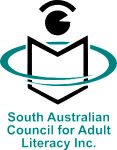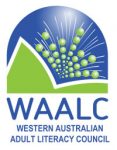Program at a glance
(Subject to change without notice)
WEDNESDAY September 13, 2017
7:30am
Registration desk opens8:35am
Larrakia Welcome to Country; ACAL President Welcome10:10-10:30am
Morning Break10:30-10:55am
Group A • Choose 1 of 4A1 • Show me the Money (Workshop)More
Marc Brierty, Melbourne Polytechnic
A2 • Technology Tearoom - A social learning model to assist mature age learners in developing skills in using digital devices. (Practice taster)More
Kerrie Tomkins, Leopold Community & Learning Centre
A3 • Connecting the Dots: the Reading Writing Hotline’s role in navigating the complex LLN landscape (Paper)More
Vanessa Iles and Jill Finch, Reading Writing Hotline
A4 • SenaiNT: A success story in the transnational delivery of an English language and foundational skills program in Timor Leste More
Maria Albion, SenaiNT foundation principal and
Joao da Costa, former student
11:00-11:25am
Group B • Choose 1 of 2 • B1 is continuation of A1 More
B2 • Untangling the literacies of university governance documents: A community of practice approach (Paper)More
Alison Reedy, Dr Penny Wurm and Mrs Amanda Janssen, Charles Darwin University
B3 • Comparative delivery of Adult Basic Education in British Columbia, Canada, and Foundation Skills in New South Wales (Paper)More
Berni Aquilina, TAFE NSW
• B4 is continuation of A4 More
11:30-11:55am
Group C • Choose 1 of 4C1 • From 16 to 80 Supporting Aboriginal Students with LLN at Tauondi Aboriginal College (Practice taster)More
Vicki Hartman, Tauondi Aboriginal College
C2 • Digital learning resources for remote learners. (Paper)More
Brendan Kavanagh, Central Australian Remote Health Development Services (CARHDS)
C3 • 1977 to 2017: How did we get here? (Paper)More
Pamela Osmond, University of Technology Sydney
C4 • A 21st Century Yolŋu ‘Bothways’ approach to English and Warramiri Literacy at Gäwa. (Paper)More
Ben van Gelderen, Charles Darwin University
12:00 noon
Lunch1:00-1:55pm
Keynote 1 ‘Can technology erase poor literacy from the global South?’ - Professor Santosh Mehrotra
2:00-2.25pm
Group D • Choose 1 of 4D1 • ALPA-Developing a Healthy Indigenous Workforce (Workshop)More
Angela Nolan and Tracey Fitzgibbon, Arnhem Land Aboriginal Progress Corporation
D2 • Numeracy, what’s the problem? (Workshop)More
Christine Tully, Melbourne Polytechnic
D3 • Evaluating the Western Australian dual enrolment vocational support courses (Paper)More
Cheryl Wiltshire, Department of Training and Workforce Development, Western Australia
D4 • What attitudes are we talking about? (Paper)More
Ser Loy Chan, Charles Darwin University
2:30-2:55pm
Group E • Choose 1 of 2 • E1 is continuation of D1 More
• E2 is continuation of D2 More
E3 • Describing capability in the foundation skills field (Paper)More
Louise Wignall, Wignall Consulting
E4 • Digital literacies, hyper-personalisation, new tribes and points of contact (Paper)More
Stefan Popenici, Charles Darwin University
3:00-3:25pm
Afternoon Break 3:30-4:30pm
Group F • Choose 1 of 2F1 • Re-imagining WELL for work in the 21st Century (Panel)More
Jenny Macaffer, Adult Learning Australia and Ros Bauer, Director Adult Literacy Services and ALA Board member
F2 • Panel: Language at Home and in the Academy: Resistance and Compromise (Panel)More
Birut Zemits and Adelle Sefton-Rowston, Charles Darwin University, Robyn Ober, Michele Willsher and Janine Oldfield, Lecturers at Batchelor Institute, Melanie Mullins and Therese Parry, (students at Charles Darwin University)
5:00pm
Walk along Waterfront area6:00pm
Darwin Deckchair Cinema doors open - food, eating area, drink and networking7:30pm sharp
Film commencesAbout 9:00pm
Film ends – return to hotels – on foot or pre-arranged private transportTHURSDAY September 14, 2017
8:00am
Registration desk opens9:00am
Keynote 1 Applying ‘Red Dirt Thinking’ to adult learning in the Northern Territory, Dr John Guenther10:00-10:30am
Morning Break10:30-10:55am
Group J • Choose 1 of 4J1 • Transition to University: Supporting nursing students to develop their numeracy skills (Practice taster)More
Elaine Bell and Jan Thompson, Flinders University
J2 • Graffiti as Literacy: reading and writing as anti-text More
Adelle Sefton-Rowston, Charles Darwin University
J3 • Tacit Knowledge, Performativity and Professionals as ‘Numbers Crunchers’ of the Digital Age: Implications for Adult Education (Paper)More
John Garrick, Charles Darwin University
J4 • The Yolngu way: Learning financial literacy skills through the strength of traditional concepts (Paper)More
Bronwyn Rossingh, Accountability Notions and Yalmay Yunupingu, Yirrkala School, Yirrkala
11:00-11:55am
Group K • Choose 1 of 4K1 • The Impact of Domestic and Family Violence on Adult Women Learners, their Lecturers and their Workplaces (Workshop)More
Rachael Uebergang and Sandra Dann, NT Working Women's Centre
K2 • Blended Learning for the LLN Classroom (Workshop)More
Kathrin Colgan, Chisholm Institute
K3 • Can we learn anything from Kiwis across the ditch? (Panel)More
David Do, Adult Literacy and Numeracy, Tertiary Education Commission, New Zealand and Lindee Conway, Foundation & Preparatory Studies, Melbourne Polytechnic
K4 • Yes, I Can! From NSW to the NT? (Workshop)More
Deborah Durnan, Literacy for Life Foundation and Bob Boughton, University of New England
12:00 noon
Lunch1:00pm
Keynote 3
Literacy in the Time of Decoloniality: New Critical Capacities, Professor Melissa Steyn2:00-2:25pm
Group L • Choose 1 of 4L1 • Points of contact for research and teaching: exploring NCVER pods to improve practice (Practice taster)More
Michele Circelli, NCVER
L2 • Journeys of new migrants: I know who I am now, therefore I can (limit of 25) (Workshop)More
Serena Seah, Swinburne University of Technology
L3 • LLN for employees, is a change of focus required? (Paper)More
Lesley Harvey, TAFESA - APY Lands
L4 • Communication in time of disaster and emergency: valuing, planning and engaging Indigenous and local knowledge systems. More
L4A • Indigenous Knowledge and Disaster Preparedness of the Tagakaulo in Malita, Davao Occidental, Philippines More
Mary Grace Agbas, University of Southeastern Philippines
L4B • Indigenous Knowledge on Disaster Preparedness of the Obu-Manuvu of Davao City, Philippines More
Gladys Florangel Ortiz, University of Southeastern Philippines
2:30-2:55pm
Group M • Choose 1 of 33:00-3:25pm
Afternoon BreakM1 • Reflections on a bygone era: How changes in work, workplaces and policy have changed what we research and what we find (Paper)More
Marilyn Kell, Charles Darwin University
• M2 is continuation of L2 More
M3 • Facilitating Foundation Skills - A Pacific Perspective More
Lina Visinia-I'amafana, Australia-Pacific Technical College
M4 • ‘Locked out’ and ‘left behind’: Indigenous Adult English Literacy and Numeracy in northern Australia’s remote regions (Paper)More
Lorraine Sushames, Allison Stewart and Fiona Shalley, Charles Darwin University
3:30-3:55pm
Group N choose 1 of 3N1 • Phonics-based adult literacy resources (Practice taster)More
Kate Randell, Adult Literacy Resources
N2 • The use of legacy materials for Indigenous literacy development (Paper)More
Cathy Bow, Charles Darwin University
N4 • Work opportunities for women in Timor-Leste: From training to employment' (Paper)More
Ricar Pascoela and Sandra Dann, Working Women's Centre, Timor-Leste
4:00-5:00pm
CLOSING FORUM: Snapshots of change: What next for Adult LLN?
2018 Conference Announcement 5:30pm
Bus – departing from Waterfront/city to Mindil Beach Market6:00pm
Sunset and Dining @ Mindil Beach Market: Seating area, food, friendship and networking8:00pm
Bus #1 - returns to Waterfront/city hotels8:30pm
Bus #2 - returns to Waterfront/city hotels





